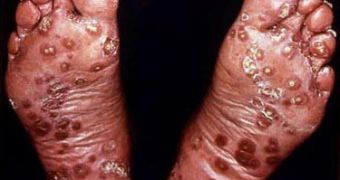The techniques of organ transplanting may have developed at an astonishing pace and more patients can survive now, but this came with a side effect: 90 % of them get skin cancer.
In case of the transplant patients, the risk of getting skin cancer is up to 250 times higher than for the overall population. This is due to the drugs that weaken the immune system of the patients so they won't reject the transplant, but this is exactly what leaves them vulnerable.
"You know, it's like a kick in the teeth when you find out there's something else you've got to deal with. But at the same time, it's like - what have I got to do to make it better," said Carl Stewart, who in the last 30 years has survived two different kidney transplants, but also got skin cancer.
The transplant patients must take very seriously each minute outside: UV radiation is a permanent threat, even when the sun is not shining.
"With the medications we have now, patients are living a much longer life and they're doing better. But this is a consequence of that good thing. We have to worry about skin cancer," said Dr. Anne VanBuskirk, at Ohio State University's Medical Center.
Till now, there was not any solution, but Vanbuskirk team has just discovered something that might save many patients. Specific cells in the immune system, named CD-4 cells, seem to play an unexpected role in protecting the skin from cancer and their number appeared greatly reduced in transplant patients.
"If we know what the CD-4 cells are doing we can compensate for that and try to treat and prevent these cancers before they start," said Vanbuskirk.
Researches could lead to the development of drugs imitating the activity of the CD-4 cells or turning on them in the body. This would also improve the life quality of the transplant patients.
The team is going to make human trials to check if replacing those cells can decrease the risk of developing skin cancer.

 14 DAY TRIAL //
14 DAY TRIAL //